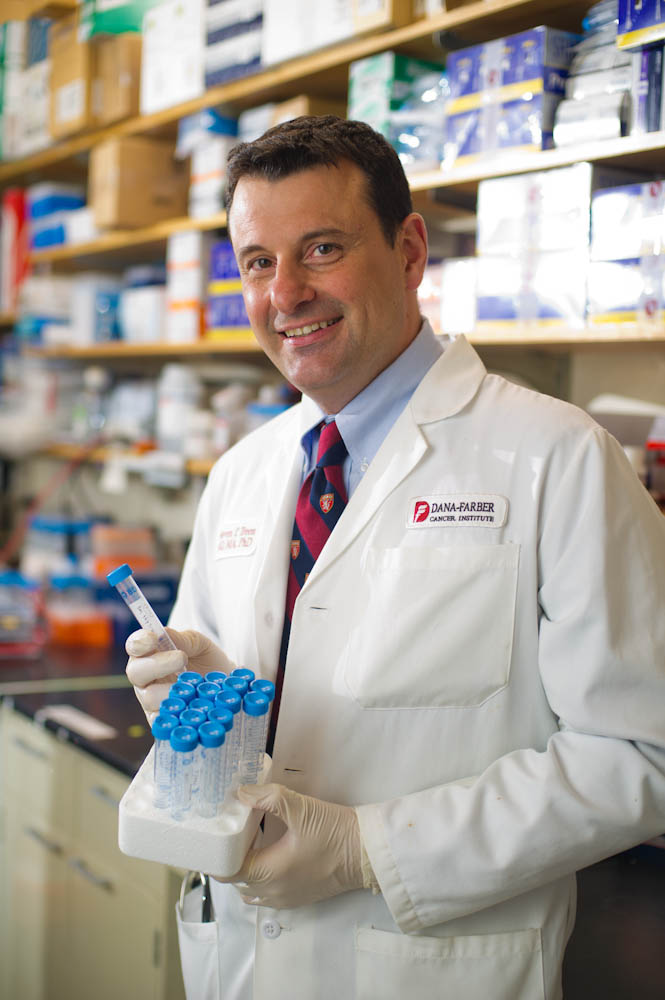Waldenström’s macroglobulinemia (Waldenström’s) is a slow-growing type of non-Hodgkin lymphoma marked by abnormal levels of an antibody called macroglobulin (IgM). Also known as lymphoplasmacytic lymphoma, Waldenström’s mostly forms in the bone marrow and can hinder the growth of normal blood cells, which can lead to anemia as well as a weakened immune system.

Waldenström’s sometimes does not produce symptoms (asymptomatic), and is often found during a blood test. However, the increased amount of IgM produced by Waldenström’s cells can cause excess bleeding as well as problems with vision. Other symptoms can include enlarged liver, spleen, or lymph nodes, headache, fatigue, weight loss, and chronic oozing of blood from the nose and gums.
Asymptomatic patients may not need to be treated right away and can be monitored for disease progression. If treatment is needed, it can include chemotherapy drugs, radiation therapy, and immunotherapy. Stem cell transplantation may also be an option for younger patients.
Recently, the drug ibrutinib was approved by the U.S. Food and Drug Administration (FDA) to treat Waldenström’s, the first and only approved treatment for the disease. Ibrutinib works by blocking a protein called BTK in malignant B cells, which carries out activities cancer cells need to survive. BTK is activated by the MYD88 L265P mutation, which is found in more than 90 percent of patients with Waldenström’s.
Read more:
Waldenström’s is rare; about 1,000 to 1,500 people are diagnosed with it each year in the United States. It is almost twice as common in men as it is in women and individuals of Ashkenazi Jewish decent may be at higher risk for Waldenström’s. It is also common to see the disease occur within families.
The chance of developing Waldenström’s also increases with age; the average patient is in his/her mid-60s when diagnosed.
While Waldenström’s is incurable, many patients are able to lead active lives and may experience years of symptom-free remission after treatment.
Learn more about Waldenström’s treatment, research and clinical trials from The Bing Center for Waldenström’s Macroglobulinemia.

Dr. Treon is an amazing doctor. I can’t thank him enough for all her did for my father with this disease.